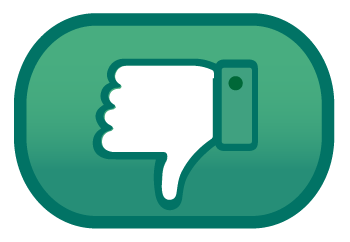If you are a survivor of multiple victimizations, including child sexual abuse, please know that you are not alone and the abuse is not your fault. No matter when the abuse occurred, DoD community members affected by sexual assault can connect with Safe Helpline for anonymous, confidential, secure support and access to resources 24/7.
What Does it Mean to be a Survivor of Multiple Victimizations?
Research has shown that those who survive sexual abuse at multiple times in their life will likely have an additional need for support. This research uses the term “survivor of multiple victimizations”[1] to talk about those needs. Every survivor’s experience is different, but a common experience for some survivors of multiple victimization is child sexual abuse. About one in seven girls and one in 25 boys will be sexually abused before they turn 18.[2] “Child sexual abuse” is an umbrella term used to include a number of behaviors that are inappropriate or harmful to children. Some common forms of child sexual abuse included within that term are:
- A perpetrator exposing themselves to a child
- Fondling a private area of a child’s body
- Performing sex of any kind (including vaginal, anal, or oral sex)
- Taking or sharing pornographic images or video of a child
- Showing a child pornographic content
- Engaging in any other kind of sexual contact with a child
Experiencing these forms of abuse may have a number of short and long-term effects on a survivor’s life.
Common Short- and Long-term Effects
As an adult survivor of child sexual abuse or multiple victimizations, you may experience some or all of the following effects, either in the long or short term:
Depression and/or Anxiety. Research shows that depression and anxiety are the most commonly reported effects experienced by survivors of multiple victimizations.
Self-Blame. You may experience self-blame or guilt about not being able to prevent the abuse you endured as a child, or feel otherwise responsible for what happened. It is important to understand that the person or people that hurt you are to blame, not yourself.
Low Self-Esteem. You may struggle with low self-esteem due to having your personal safety violated or ignored, which can also affect many aspects of your personal and professional life.
Difficulty with Intimacy. You may have difficulty navigating intimacy, for example experiencing unwelcome flashbacks or painful memories during consensual sexual interactions.
These are just some of the effects you may experience after a sexual assault. If you are experiencing these or other effects, know that you are not alone and that there is hope. To learn more about the effects of sexual assault, click here.
Unique Needs of Survivors of Multiple Victimizations and Child Sexual Abuse
The effects you may be experiencing could last for months or years, even after the abuse has stopped. Due to your experiences, there are a number of resources that you may find helpful. They may include mental health counseling and treatment, substance abuse treatment, help with legal matters, or help navigating employment and housing assistance resources.[3] Survivors in the DoD community can connect with both military and civilian service providers through Safe Helpline’s Responders Near Me database. Safe Helpline’s Transitioning Service Member database can help those separating or retiring from the military connect with DoD, Veteran’s Affairs, and civilian resources that may be helpful during this transition.
How to Support a Survivor of Multiple Victimizations or Child Sexual Abuse
As a friend, family member, or other supporter, if a survivor chooses to disclose sexual abuse of any kind to you, it is important to believe and support them. You may have questions, but the most important thing you can do is listen. Negative reactions to disclosure of sexual abuse can have lasting effects on a survivor’s ability to tell others about their experience and reach out for professional resources. Survivors of multiple victimizations and child sexual abuse often have complex needs and they may find it helpful to connect with trained service providers to address those needs. It is also important to check in with yourself; it is okay if you need time and space to process what the survivor has told you. You may want to help the survivor connect with Safe Helpline or another trusted resource for support, rather than trying to help them on your own. Regardless of the survivor’s decision to connect with other resources, make sure to respect their choice.
To learn more ways to support the survivors in your life, visit Safe Helpline’s Information for Supporters of Survivors page.
Additional Resources
There is no set timeline for healing from abuse. Regardless of what stage you are at in your healing journey, Safe Helpline is available to provide support and access to resources.
To connect one-on-one with a Safe Helpline staff member call 877.995.5247 or visit SafeHelpline.org.
[1]Davies, Jill. (2007). “Helping Sexual Assault Survivors of Multiple Victimizations and Needs: A Guide to Serving Sexual Assault Survivors”. https://www.nsvrc.org/sites/default/files/2012-03/Helping-sexual-assault-survivors-with-multiple-victimizations-and-needs_0.pdf. Pg. 14.
[2] Townsend, C., & Rheingold, A.A., (2013). Estimating a child sexual abuse prevalence rate for practitioners: studies. Charleston, S.C., Darkness to Light. Retrieved from www.D2L.org.
[3] Davies, Jill. (2007). “Helping Sexual Assault Survivors of Multiple Victimizations and Needs: A Guide to Serving Sexual Assault Survivors”. https://www.nsvrc.org/sites/default/files/2012-03/Helping-sexual-assault-survivors-with-multiple-victimizations-and-needs_0.pdf. Pg. 1.


